I breastfed my fourth child throughout my fifth pregnancy and then went on to tandem nurse, which I believe helped my fourth child transition more easily from being the baby to becoming the big brother.
I’ve often wondered how pregnancy and breastfeeding affect one another and while we often hear personal stories of breastfeeding during pregnancy, I sought out some factual info from a couple of La Leche League leaders.
As usual, please remember that the following is for general information only. Please consult with a local lactation consultant, midwife, La Leche League leader, or other birth or breastfeeding professional to answer any specific questions you may have.
Answers from Kay Smith, BS, CLD, CLE, CCCE, Joyful Beginnings Childbirth Services, joyfulbeginnings@att.net
Q: I breastfed during the first month of my pregnancy but had to stop because my progesterone levels were low. Is there evidence that breastfeeding can cause progesterone to lower?
A: While it is true that progesterone levels drop after the birth/delivery of the placenta, and prolactin levels rise, resulting in the production of a full milk supply, there is no evidence in my research at this time that would suggest that low progesterone levels are a result of breastfeeding during pregnancy. As a matter of fact, rising progesterone levels in a normal/healthy pregnancy can inhibit prolactin, resulting in changes in milk supply during pregnancy. There are many other factors that may contribute to low progesterone levels. Some have suggested that nutritional deficiencies, insulin resistance, and estrogen dominance during the luteal phase may all contribute to low progesterone levels, which have been known to contribute to miscarriage. In most instances like this, progesterone supplementation during the early months of pregnancy is recommended, and breastfeeding can continue.
Q: I know that sometimes nursing can cause contractions. Normally I don’t think it would be a problem, but how does this work for a mama who is high risk for preterm labor? I always tend to wean toward the middle of pregnancy if not sooner just because I fear that I’ll trigger early labor.
A: In a normal/healthy pregnancy, it has been sometimes recommended to stop breastfeeding due to possible uterine contractions. Research has not proven this to be beneficial, or even necessary, because the oxytocin receptor sites in early pregnancy are much less, compared to those in a uterus that is about to go into labor, or in a uterus that has just given birth. This means that the contractions throughout pregnancy (until close to labor) are not going to change the cervix or bring on labor. However, in a situation where a mom has a high-risk for preterm labor, the evidence/advice is not as clear. Some experts recommend that a mom who is experiencing symptoms of pre-term labor, may benefit from at least temporary weaning. Some moms in this situation choose to continue to breastfeed, but stop the breastfeeding session if symptoms arise. Some choose to stop for days, or even weeks, if symptoms are too troublesome, and they are not able to distinguish whether or not they are experiencing Braxton-Hicks contractions or pre-term labor. In the vast majority of women, breastfeeding can continue, if they are not at immediate high-risk of preterm labor, but this decision is best discussed between a mom and her healthcare provider.
Answers from Victoria Thurman, LLL Leader, Fayetteville, AR, llloffayetteville@gmail.com
Q: How many calories should a pregnant and nursing mom get each day? What extra supplements should you take?
A: I have been a La Leche League Leader for a little over 3 years. I love the way in which La Leche League reaches out to help nursing mothers and I only hope that we continue to make such a difference as we have over the past fifty plus years. As an advocate of La Leche League, I guide mothers to areas of information.
Victoria recommends this information, straight from LLLI, to address any concerns regarding nutrition while breastfeeding pregnant: Maternal Nutrition during Breastfeeding.
Answers from Stormy Haigh, Birth Doula, Famous from Birth Doula Services
Stormy.Haigh1607@gmail.com
Q: Doctors always told me that because nursing can stimulate the uterus and cause contractions, it wasn’t safe. How much does one have to worry, especially if there isn’t a history of miscarriage or pre-term labor?
A: That is a myth. It is perfectly safe to breastfeed while pregnant. As long as you eat a nutritious diet and make sure you are taking in plenty of fluids. The hormone oxytocin causes let down, which also causes uterine contractions, but (in a normal, healthy pregnancy) the amount of oxytocin (in most cases), is not enough to cause you to go into preterm labor.
Q: Is there anything you can do to increase milk supply during pregnancy? I know the law of supply and demand doesn’t work the same when you are pregnant!
A: There are a few things you can do to increase your milk supply while you are pregnant. Make sure you are drinking LOTS of water! Eat oatmeal for breakfast, oats increase supply. Pump as much as you are able. Make lactation cookies, yum! And add brewer’s yeast to your foods. Make sure you have a good support system when you are nursing while pregnant. Le Leche League is a GREAT resource!

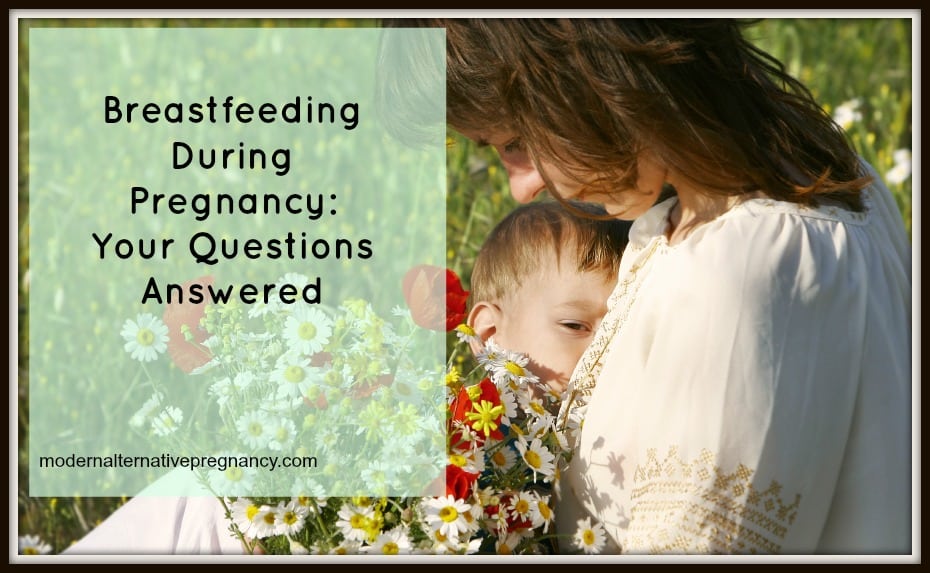
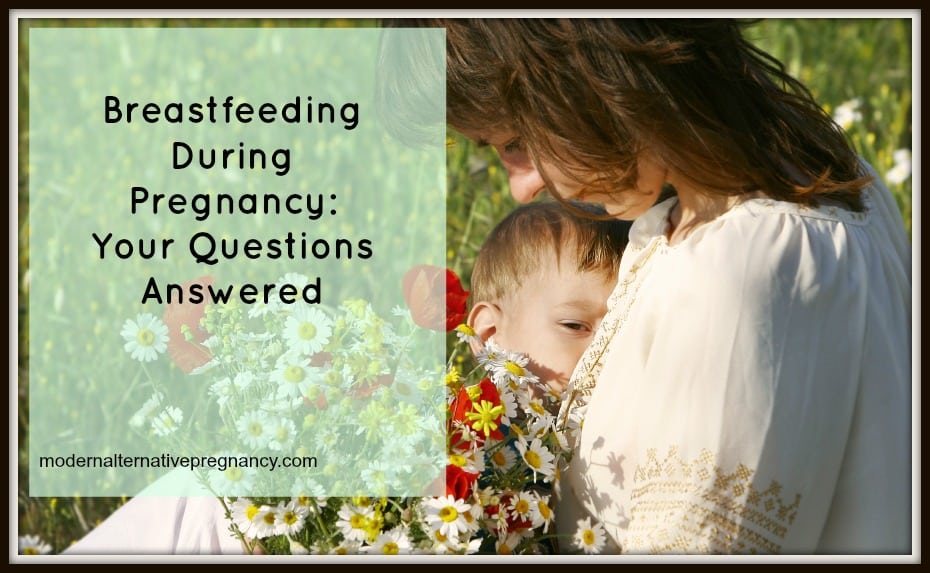
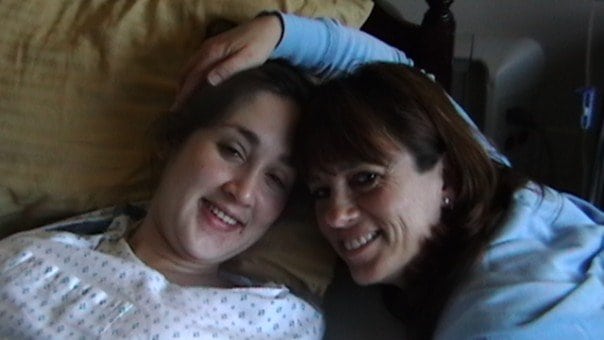

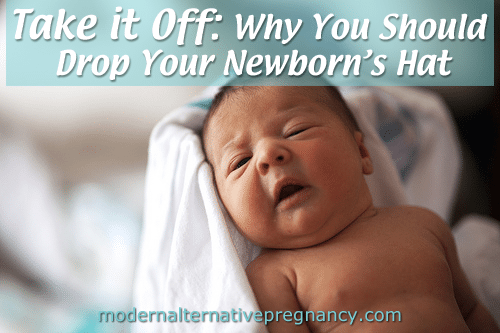
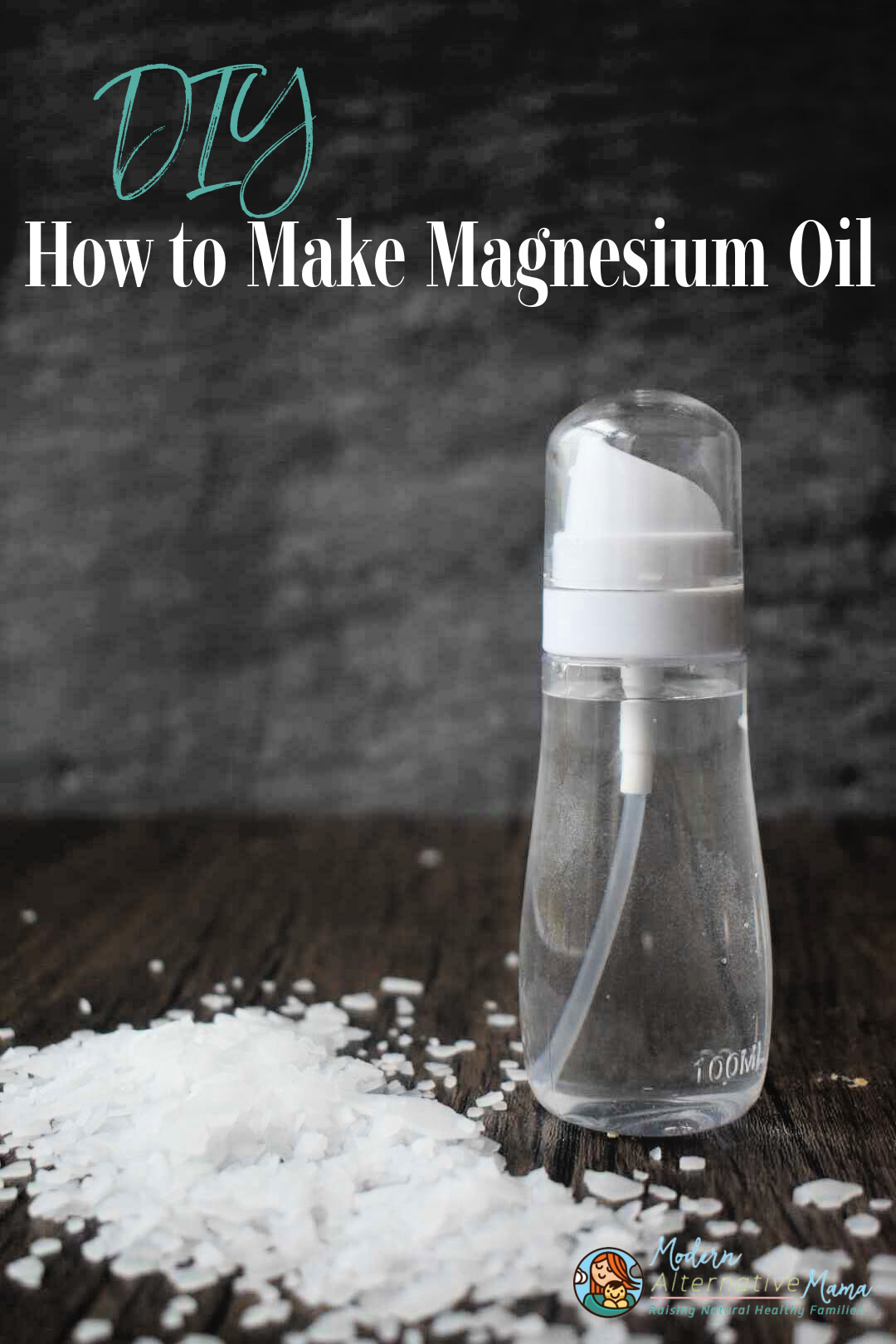

I recently found out that I’m pregnant again, probably about 8-9 weeks along. My first born is only 5.5 months old. I want to continue exclusively breastfeeding him up to the one year mark but I’ve been reading up on it and everything says he may self-wean before then and that my milk will turn into colostrum when I’m 4-5 months along. I detest formula with every fiber of my being, so that’s not even an option. Has anyone else dealt with pregnancies this close together and still been able to EBF the whole time? Did you have to wean to animal milk or formula?
You can definitely successfully tandem feed, Stephanie. You could also look into getting donor breastmilk for your little one.
You can absolutely tandem nurse through pregnancy so long as you are not at risk for miscarriage. Uninformed physicians often freak at the idea of a pregnant mama breastfeeding as it does cause uterine contractions, but that is not necessarily a bad thing; however, uterine contractions is not something ideal for a mother with a history of miscarriage.
I have four girls. The first two are 18 months apart. The second and third are 21 months apart and then the last two are 27 months. I tandem nursed them all without any prenatal complications. All wean between 3.5 and 4 years of age.
Breastfeeding is a natural process by which a mother can feed her child, no matter she is in her pregnancy days or not. Her body will carry on making sufficient amount milk during pregnancy but she had to take more care of her diet and nutrients. If a women’s pregnancy is going well and healthy then there is no harm in feeding to her child and if you feel tiredness just eat healthy food to make your body active and well. For more info over breastfeeding you can check this blog http://www.first1000days.ie/category/breastfeeding/
[…] To continue reading, please visit Modern Alternative Pregnancy. […]
[…] To get more answers to your questions about nursing while pregnant, check out these Q&As with La Leche League leaders. […]
I am in my 40s and I’m nursing a 2 year old. I’d like to get pregnant but I’m nervous that I might miscarry. I have had several other healthy complication free pregnancies, and I wasn’t nursing. I don’t want to wean her completely, but I’m wondering how many feedings I should try to get her down to each day. She is at about 5 feedings in 24 hrs and would like to do more. The hardest time is before bed.Sometimes she wakes in the night and nurses, and then always wants it upon rising.
There are a lot of women who do breastfeed during pregnancy. But we do understand the need to wean also. We’d suggest trying distractions like food and play, cutting one feeding at a time. With mine, I usually weaned done during the day and leaving the night time feeding as the last one to wean (when they were ready).